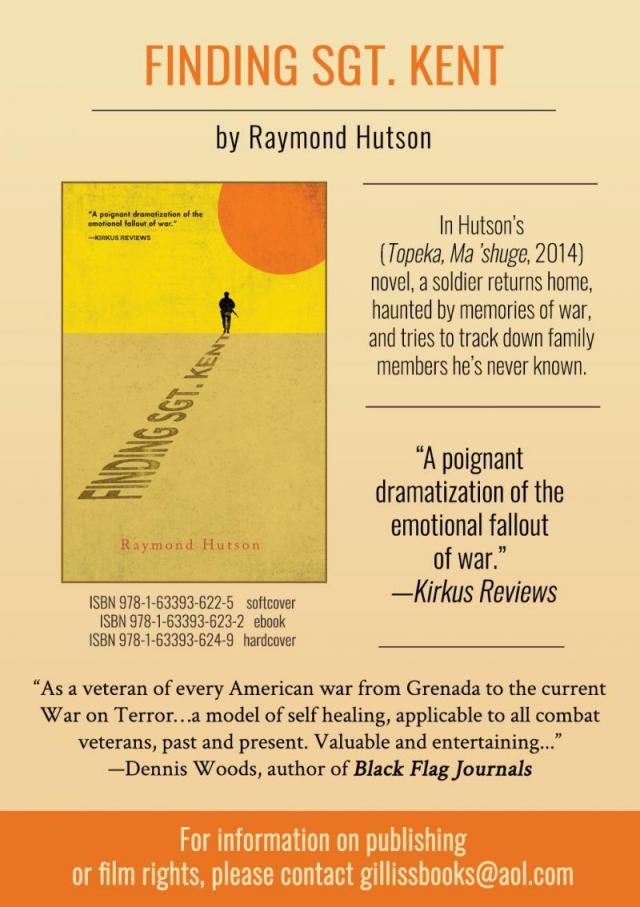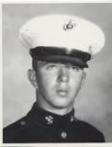I never went to war. I never received an invitation. My lottery
number was just too high in 1972. I have—perhaps an
unintended penance—spent 10 years or so caring for veterans
of a half-dozen wars in VA hospitals, listening to their stories,
and collectively I don’t think there are a finer cohort of individuals
on this planet. This work of fiction, of course, does not reflect
the life experience of a particular soldier, but might easily relate
to any soldier.
In my novel, a soldier returns home haunted by memories of
of war, and tries to track down family members he’s never known.
From Kirkus Review:
"Robert Kent served as a sniper in Afghanistan, rising to the rank
of master sergeant before he was discharged after some 15 years
of service. Now he finds himself in a veterans hospital, alone and
plagued by memories of past violence, emotionally lost but not yet
ready to surrender to despair. Dr. Zilker, his preternaturally patient
therapist, prods him to discuss the last day of his tour of duty in
Afghanistan, during which he was involved in a ferocious firefight
and badly wounded. Over the course of three tours, he was awarded
two Purple Hearts and a Silver Star Medal, but they provide him with
no relief from his nightmares. Before he enlisted, he had a difficult
childhood—he never knew his Vietnam-veteran father, and his
mother drank herself to death when he was 15. He was taken in by a
foster family in his teens. At Zilker’s encouragement,
Robert decides to track down his surviving relations, aided by little
more than his parents’ names and letters that his father wrote to his
mother while serving overseas. Robert’s longing to get to know his family
members is palpable, and, by extension, his
desire to discover something new about himself: “now I was going
to get to turn over all the pieces on the game board.” The author’s
prose artfully balances a poetical sensitivity with the gritty anger of
his protagonist. Also, his descriptions of military life—and of combat,
in particular—feel impressively authentic. The novel’s chief source
of strength, however, is the author’s literary restraint; it’s a study in
the raw power of unsentimental expression, as well as an extension
of Robert’s wounded laconicism. The book offers a sensitive look at
the psychological ramifications of combat, raising tough questions
without offering facile answers.
A poignant dramatization of the emotional fallout of war."
Available on Amazon as well as Barnes & Noble, and all fine bookstores.

Finding Sgt. Kent: a novel of redemption, a story of repatriation.
Deer Park, WA
September 13, 2018
Submitted by:
Raymond Hutson



